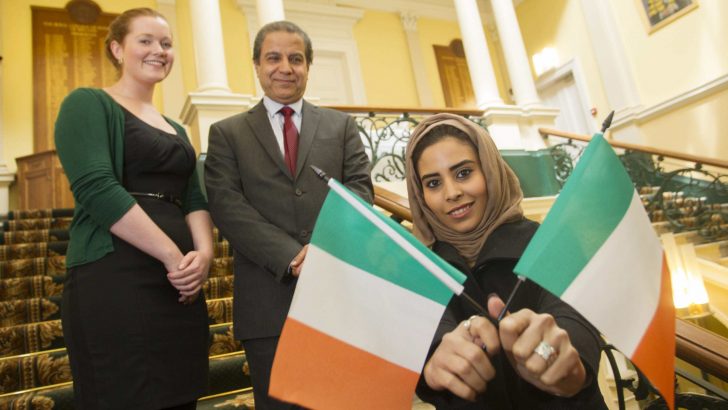Secret of the powers that be
Over the last 30 years the Islamic presence in Dublin has grown. I wrote about this then about in my book Dublin Churches, for the only mosque on the North Circular Road was making use of a former Presbyterian church.
The first Muslim presence was due to Malayan medical students at the College of Surgeons, later followed by Libyan engineers enrolled with Aer Lingus training schemes.
Now the new developments are largely funded by Brunei (Sunni) and Saudi Arabia (ultra strict Wahabi Sunni). From Iran and Syria have more recently come adherents of Shi’a, some of whom have made a mark on eateries in Temple Bar.
So is interest then to find that among the released files there is one (2016/22/297) that deals with a proposal to establish an Institute of Arab and Islamic Studies, which came to concern the Foreign Affairs, the Department of Education, the HEA and others.
The proposal came to the Taoiseach, Charles Haughey, from a Dr Denis MacEoin, who was academically interested in the region. He, however, wanted the government to initiate the approaches to the Arab government, which the departments were very reluctant to undertake.
Support
The extent of support for such a venture in the academic world in Ireland was unclear. At UCD lectures were given in Arabic in the School of Semitic Languages, and at the Chester Beatty Library and Gallery of Oriental Art there was a long standing involvement in Arab and Islamic studies internationally.
The Secretary of the Department of Foreign Affairs thought that “in the right circumstances” such an Institute “could in the long run …foster a regard for Ireland in Arab countries. It might also have economic spin-offs.
But it could not be a profitable investment for Irish interests, and he doubted if the Arab countries (largely Saudi Arabia and the Gulf states) would be quite as generous as Dr Mac Eoin imagined they might be.
Such an institute in Paris or London, with their large Muslin populations was one thing; Ireland quite another. Would there be the students?
The Ambassador in Beirut, Gearóid Ó Clérigh, found that a knowledge of Ireland was (at that time) very muddled in the Middle East. He realised that such an institute “could bring the effects of Arab or Islamic problems closer to Ireland”.
There would be polite pressure from the door states. Inter-Arab and ideological rivalries would pose their own difficulties for Ireland, but “presumably the Department of Justice would be able to elaborate on such possibilities and also devise ways of handling them”.
The proposal faded away. But one has to wonder what could have developed for both good and ill from such an establishment. Certainly Ireland has become involved in Arab and Islamic affairs, but there is still little understanding both of Arab religion and Islamic culture in Ireland.


 Courtney McGrail
Courtney McGrail Arabic Student with advisers
Arabic Student with advisers